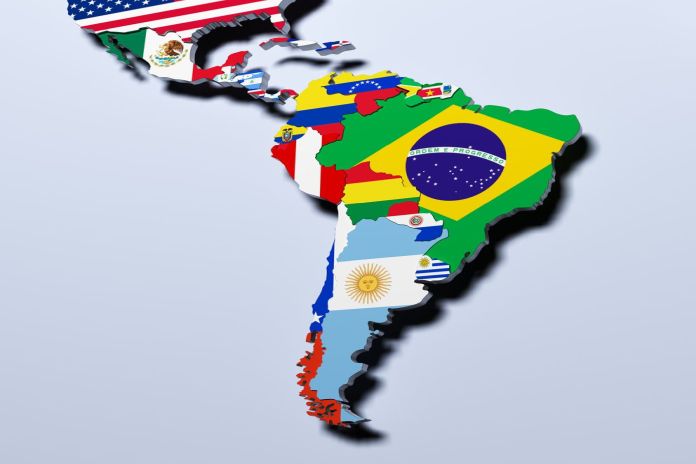By DemDigest
The Russian government is currently financing an ongoing, well-funded disinformation campaign across Latin America. The Kremlin’s campaign plans to leverage developed media contacts in several Latin American countries in order to carry out an information manipulation campaign designed to surreptitiously exploit the openness of Latin America’s media and information environment.
The Russian government is currently financing an ongoing, well-funded disinformation campaign across Latin America, the U.S. State Department reports. The Kremlin’s campaign plans to leverage developed media contacts in Argentina, Bolivia, Chile, Colombia, Cuba, Mexico, Venezuela, Brazil, Ecuador, Panama, Paraguay, Peru, and Uruguay, among other countries in Latin America, in order to carry out an information manipulation campaign designed to surreptitiously exploit the openness of Latin America’s media and information environment.
The Kremlin’s ultimate goal appears to be to launder its propaganda and disinformation through local media in a way that feels organic to Latin American audiences to undermine support for Ukraine and propagate anti-US and anti-NATO sentiment, it adds.
A new LAPOP study found that only 59 percent of people in Latin America and the Caribbean say democracy is the best form of government. That’s about 10 percentage points lower than a decade ago. Support for democracy had been holding steady at about 68 percent from 2004 to 2014, but by 2016 it dropped dramatically to 58 percent and has never recovered, the AmericasBarometer data show. Attitudes toward democracy have eroded most severely in Argentina, Colombia, Jamaica and Suriname.
On November 28th, the National Endowment for Democracy’s International Forum for Democratic Studies hosted the launch of a new report examining civil society’s response to authoritarian information manipulation targeting democracy in Latin America.
Authors Iria Puyosa (Atlantic Council DFRLab) and Mariví Marín Vázquez (ProBox), editor Adam Fivenson (IFDS), and Fabiola Córdova (NED) discussed key takeaways from the analysis, Deepening the Response to Authoritarian Information Operations in Latin America. Journalist and Carnegie Endowment for International Peace Distinguished Fellow Moisés Naím moderated the discussion.
“The experience of Latin America, where there are many vulnerable democracies, is a critical example of how the Russian government and the Chinese Communist Party use information and ideas to project influence, attack, democratic values and institutions, and prop up autocratic allies,” said Fivenson, the report’s editor and the Forum’s senior program officer for information space integrity.
“Amid the deluge, civil society initiatives to secure the information space are intensifying, but current efforts may not be enough to counter the increased collaboration of authoritarian actors.”
In Latin America, the region’s “calculated ambiguity” (source material in Spanish) emphasizes the profound political influence of alternative narratives that these two illiberal forces push, says Maria Isabel Puerta Riera.
The neutral stance some of these countries have adopted regarding the Ukrainian conflict is evidence of the impact of these forces, adopting the argument of the proxy nature of the conflict as an excuse for neutrality. Brazilian President Luis Inácio Lula da Silva’s recent comments after his trip to Asia accusing the U.S. of “encouraging the war”have further underscored Latin American implicit alignment with Russia and the PRC over the conflict, she writes for the Forum’s Power 3.0 blog.
This article is published courtesy of the National Endowment for Democracy.





